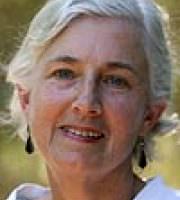by Diane Fahey
The order was discovered in 1701, and came to light as a result of the ticking noise made by booklice in an English library.
T. Rowland-Entwistle, The World You Never See
Avid readers, they can ingest
the whole book—glue, gold lettering—
yet are not indiscriminate,
preferring sacred text to pulp novel
as older, dryer, more succinct—
not weighed down by brute greed,
dynastic stress, bodily appendages
at every turn of a page, however porous.
Somewhat disembodied themselves,
they chew slowly on wafer-like dicta:
they savour logos, not eros.
In human form, booklice make good librarians,
of course, but rarely poets,
except for the Philip Larkins types—
withheld words, guarded silences,
dislikes filed on microfiche:
their muse the female they dread,
"concealing her eggs among silk and debris'.
Lucky for the date stamp coming sternly down
on such prodigal improvisations
while the whole library resounds,
filled with culture's overview,
nature's hidden agenda.
Last updated April 01, 2023





